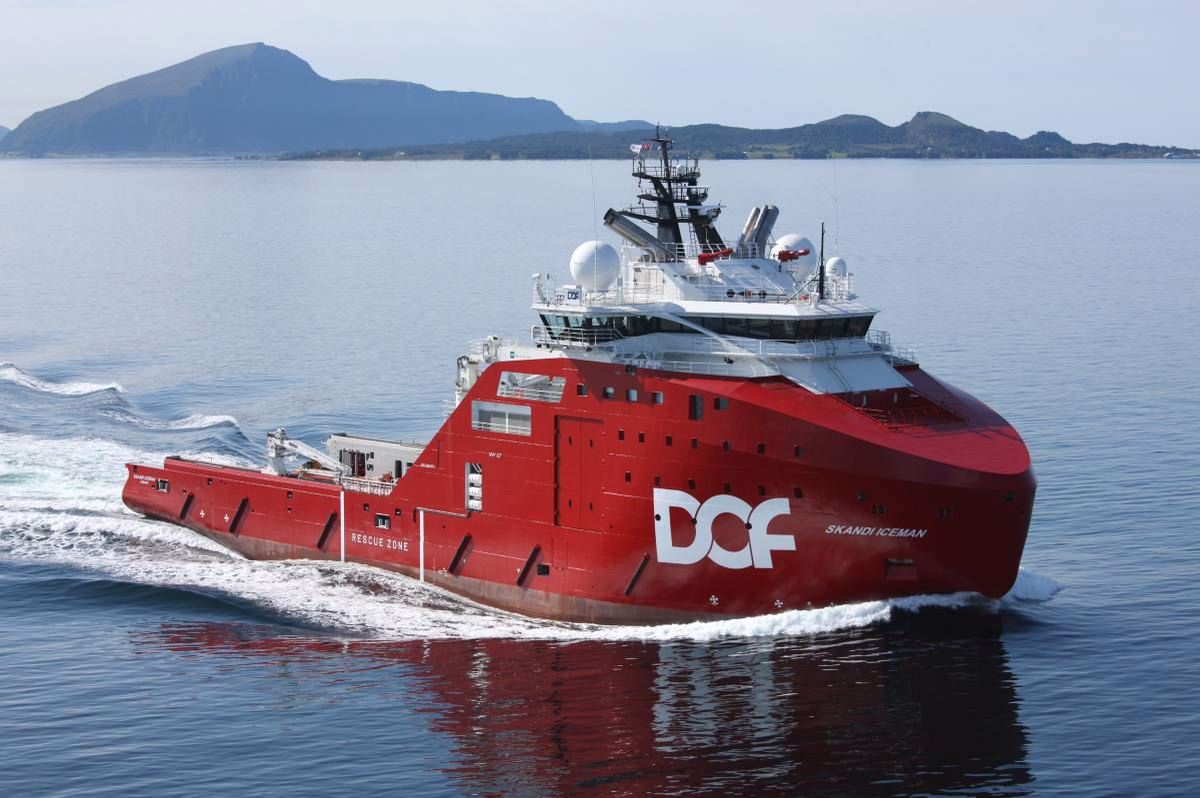Norwegian offshore firms study alternative fuels to cut emissions
The Norwegian Shipowners' Association (NSA) and several offshore shipping companies have commissioned a study on alternative fuels.
 PHOTO: DOF’s offshore supply vessel Skandi Iceman. NSA
PHOTO: DOF’s offshore supply vessel Skandi Iceman. NSA
The study will be conducted by research firm SINTEF Ocean and evaluate “the technical and practical factors” impacting the choice of alternative fuels in offshore support vessels (OSVs).
It will then come up with recommendations for three specific offshore vessel types - platform supply vessels (PSVs), anchor handling tug supply vessels (AHTSs), and construction support vessels (CSVs).
It will assess the technical and operational issues that “affect and limit the choice of alternative fuels.” These issues include “energy consumption, production capacity, technological maturity, and costs of newbuilds and modifications,” the NSA says.
The Norwegian offshore shipping companies DOF, Solstad and Eidesvik will provide SINTEF Ocean with data for the study.
“In order for the industry to achieve its climate goals, the ships being built today must meet future emission requirements. However, this requires that the shipping companies have a solid knowledge base for their investment decisions,” the NSA’s chief executive Harald Solberg says.
The study aligns with NSA’s aim of reducing emissions “by 50 percent per unit by 2030 compared to 2008” and having a carbon neutral fleet by 2050.
Offshore sector to take on responsibility
“Our industry has significant influence in the maritime sector, and it is a responsibility we take seriously,” DOF’s project manager Lars Christian Larsen says.
NSA quotes a KonKraft alliance report from June on emission reduction in the Norwegian oil and gas industry that revealed “offshore shipping companies are already well underway in reducing their operational emissions.” KonKraft alliance is an “agenda-setter,” which comprises several Norwegian federations and trade unions, for the Norwegian petroleum sector.
Several ships being built now are “alternative fuel ready,” which means they are generally designed in a way that prepares them for future retrofits that will enable them to consume alternative fuels, Larsen emphasises.
But this requires “investment in fuel production and infrastructure.”
“In this regard, the industry has a particular responsibility and an opportunity to influence which alternative fuels will be available by sending a clear signal to both producers and authorities. With this project, we aim to make it easier for all companies in the segment to invest in zero and low-emission technology,” Larsen adds.
He also believes that this will highlight the “limited number of energy carriers” for the segment, thus “making it clearer for the bunkering infrastructure sector.”
The consortium expects the study to be concluded in October this year.
By Tuhin Roy
Please get in touch with comments or additional info to news@engine.online






